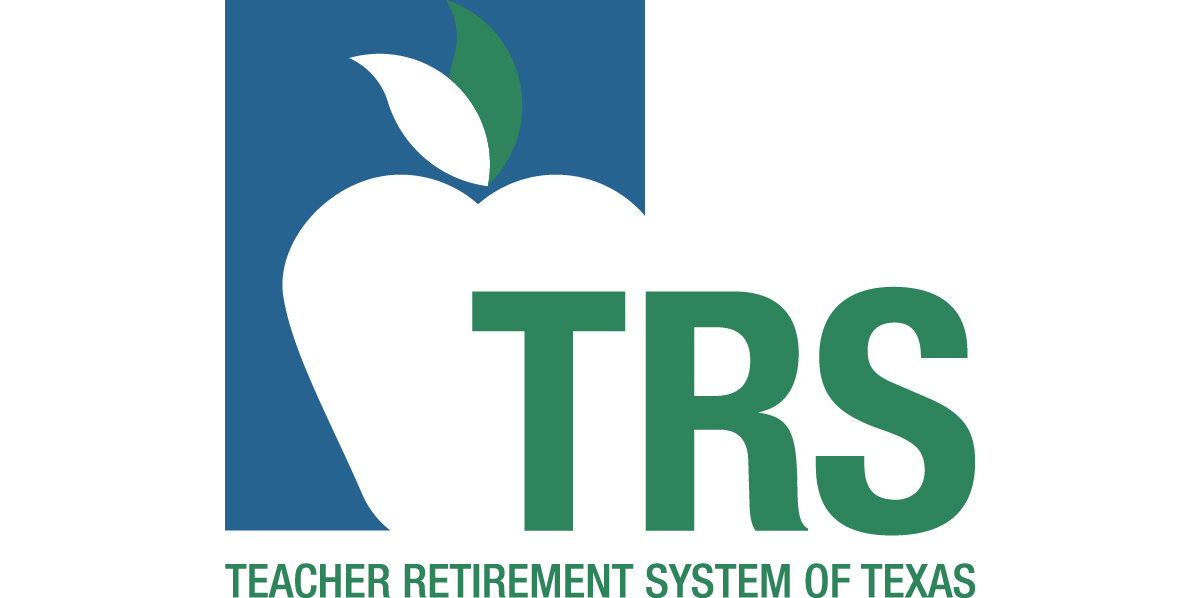Teach the Vote's Week in Review: Sept. 30, 2016

Date Posted: 9/30/2016 | Author: Monty Exter
Here is this week's Teach the Vote wrap-up of education news:
School funding was the center of attention at the Texas State Capitol this week as legislators held interim hearings to consider education-related budget requests and the possibility of changes to the state's school finance system next session. Education related hearings began on Tuesday this with week with the Legislative Budget Board and the Governor's education staff holding a series of joint budget hearings where they heard from TEA, the School for the Deaf, the School for the Blind and Visually Impaired, and TRS. Commissioner of Education Mike Morath laid out TEA's appropriations request including exceptional items. TRS Executive Director Brian Guthrie delivered a presentation on his agency's appropriations request which covered the trust fund, TRS-Care, and TRS ActiveCare. Budget related hearings continued on Wednesday and Thursday as the House Appropriations and House Public Education Committees held a two-day joint hearing on school finance. On day one of the hearing, the committees heard from four panels of invited witnesses covering the following topics: an overview of the school finance system, litigation, and revenue; additional state aid for tax reduction (ASATR); recapture; and district adjustments. On day two, the committees heard from an additional three panels of invited witnesses as well as approximately 60 public testifiers, including ATPE Lobbyist Monty Exter. The final three panels of invited testimony covered student adjustments, facilities funding, and school finance options for the 85th session.
Note: we will update this post with a link to footage of day two of the joint hearing on school finance as soon as archived video becomes available from the state.
 October 11 is the last day to register to vote (or update your registration if you've recently moved) if you plan to vote in the Nov. 8 general election. On our blog this week, we shared a post from ATPE with recommendations from a Texas teacher on how to engage students this election season. Don't forget that students who will be 18 years old on Election Day can register, too!
Find out more about the candidates running for seats in the Texas Legislature or State Board of Education by visiting our 2016 Races page here on Teach the Vote. Our candidate profiles are designed to inform voters about the candidates' views on public education. They include incumbents' voting records and candidates' responses to our survey about major education issues. Several candidates vying for contested seats this fall have recently answered our survey, so check out the profiles for races in your area to find out where your candidates stand. Remember also that regardless of which primary you participated in this spring, you can vote for candidates of any party or independent candidates in the November general election.
Your vote is your voice!
October 11 is the last day to register to vote (or update your registration if you've recently moved) if you plan to vote in the Nov. 8 general election. On our blog this week, we shared a post from ATPE with recommendations from a Texas teacher on how to engage students this election season. Don't forget that students who will be 18 years old on Election Day can register, too!
Find out more about the candidates running for seats in the Texas Legislature or State Board of Education by visiting our 2016 Races page here on Teach the Vote. Our candidate profiles are designed to inform voters about the candidates' views on public education. They include incumbents' voting records and candidates' responses to our survey about major education issues. Several candidates vying for contested seats this fall have recently answered our survey, so check out the profiles for races in your area to find out where your candidates stand. Remember also that regardless of which primary you participated in this spring, you can vote for candidates of any party or independent candidates in the November general election.
Your vote is your voice!
Rep. Dawnna Dukes (D-Austin) announced this week plans to resign from her House seat in January. Dukes cited lingering health problems following an automobile accident in 2013 in which she injured her back. She has recently been the subject of a criminal investigation into allegations that she misused state funds and her legislative office employees for personal work. Dukes has had a long record of supporting pro-public education legislation since taking office in 1994, but health issues resulted in her being absent for a good part of the last legislative session. ATPE thanks Rep. Dukes for her service and wishes her a full recovery. If Dukes is re-elected in November, Gov. Abbott will have to call a special election to fill the vacancy upon her resignation.
With the legislative session just a few months away, Lt. Gov. Dan Patrick (R) is among a host of elected officials making the rounds to tout private school vouchers as a civil rights imperative. He and other Republican senators have given public speeches, appeared on panels at recent events such as the Texas Tribune Festival, and implored their legislative colleagues to support an especially alarming form of voucher known as an Education Savings Account (ESA). ESA programs call for the state to give public funds directly to parents, often in the form of debit cards that can be used for any education-related expense on behalf of their children, including paying for home schooling or private school costs. Dr. Charles Luke, who heads the Coalition for Public Schools of which ATPE is a member, penned an opinion piece for the Waco Tribune this week in which he debunks the "school choice as a civil right" myth. Luke writes that "vouchers disguised as 'school choice' have repeatedly been used to further segregation around both race and income," citing voucher programs that began shortly after the U.S. Supreme Court's landmark school desegregation ruling in 1954.
 ESAs and other voucher proposals fail to create any legitimate options for educationally disadvantaged students, as Luke points out, especially without any requirement that private schools accepting vouchers adhere to state and federal laws that prevent discrimination, protect students with special needs, and impose accountability standards. Private and parochial schools have generally balked at the notion of complying with the same laws as public schools — such as requirements for student testing, providing transportation, and admitting all students regardless of disability, race, or other factors — in exchange for taxpayer funds. Sen. Sylvia Garcia (D-Houston), sitting on a panel at last weekend's Texas Tribune Festival, pointed out the practical impossibility of ensuring that ESA funds are spent appropriately. She expressed serious doubt that Texas Comptroller Glenn Hegar and his staff would have the necessary resources to scrutinize receipts submitted by parents to back up expenditures made using an ESA.
A much more realistic plan for helping all students, and especially those living in poverty, would be to improve the state's school finance system, which the Texas Supreme Court has upheld as constitutional but deemed only "minimally" acceptable. ATPE Lobbyist Monty Exter wrote on our blog this week about the need for lawmakers to increase the weights in our state's current school finance system, along with creating a new funding weight that would account for campuses with particularly high concentrations of students with greater needs. Campus-based weighted funding of this nature would help districts such as Austin ISD that are forced to share their local tax revenue through the current recapture system on account of having elevated local property values but also include campuses with high populations of students in poverty and English language learners. Houston ISD, another district negatively affected by recapture, is waiting to see if its voters will reject a local property tax increase next month, which would force the state to reallocate Houston's tax base toward other school districts. An HISD representative testified at Wednesday's school finance hearing that nearly 80 percent of the district's students are economically disadvantaged. Read more about the Houston district's dilemma here.
With marathon hearings on school finance taking place at the Capitol this week, stay tuned to find out if lawmakers are receptive to making any significant changes next session.
ESAs and other voucher proposals fail to create any legitimate options for educationally disadvantaged students, as Luke points out, especially without any requirement that private schools accepting vouchers adhere to state and federal laws that prevent discrimination, protect students with special needs, and impose accountability standards. Private and parochial schools have generally balked at the notion of complying with the same laws as public schools — such as requirements for student testing, providing transportation, and admitting all students regardless of disability, race, or other factors — in exchange for taxpayer funds. Sen. Sylvia Garcia (D-Houston), sitting on a panel at last weekend's Texas Tribune Festival, pointed out the practical impossibility of ensuring that ESA funds are spent appropriately. She expressed serious doubt that Texas Comptroller Glenn Hegar and his staff would have the necessary resources to scrutinize receipts submitted by parents to back up expenditures made using an ESA.
A much more realistic plan for helping all students, and especially those living in poverty, would be to improve the state's school finance system, which the Texas Supreme Court has upheld as constitutional but deemed only "minimally" acceptable. ATPE Lobbyist Monty Exter wrote on our blog this week about the need for lawmakers to increase the weights in our state's current school finance system, along with creating a new funding weight that would account for campuses with particularly high concentrations of students with greater needs. Campus-based weighted funding of this nature would help districts such as Austin ISD that are forced to share their local tax revenue through the current recapture system on account of having elevated local property values but also include campuses with high populations of students in poverty and English language learners. Houston ISD, another district negatively affected by recapture, is waiting to see if its voters will reject a local property tax increase next month, which would force the state to reallocate Houston's tax base toward other school districts. An HISD representative testified at Wednesday's school finance hearing that nearly 80 percent of the district's students are economically disadvantaged. Read more about the Houston district's dilemma here.
With marathon hearings on school finance taking place at the Capitol this week, stay tuned to find out if lawmakers are receptive to making any significant changes next session.
CONVERSATION
RECOMMENDED FOR YOU

04/19/2024
Teach the Vote’s Week in Review: April 19, 2024
Listen to the latest episode of The ATPE Podcast learn why your vote in school board, appraisal, and bond elections is so critical.

04/18/2024
5th Circuit Court denies rehearing in publishers’ Texas library book lawsuit
Author of HB 900 urges Paxton to appeal to the U.S. Supreme Court.

04/17/2024
TRS board to consider lowering TRS-Care Medicare Advantage premiums
Increased legislative funding, federal changes mean TRS is positioned to pass on savings to plan participants.


